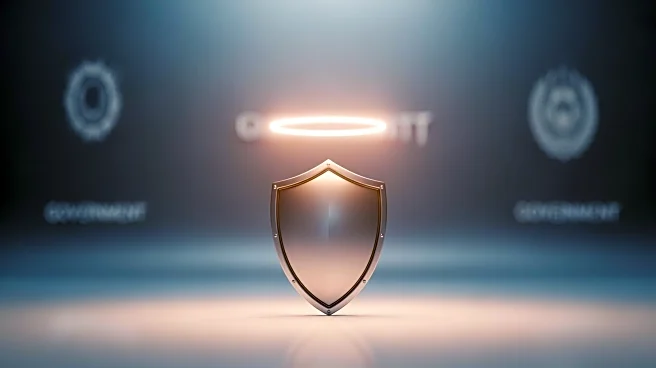What's Happening?
The Department of Homeland Security (DHS) has sparked controversy by using imagery from the popular video game series 'Halo' in its social media recruitment campaign for Immigration and Customs Enforcement
(ICE). The official DHS account shared an image featuring Master Chief, a character from 'Halo', with the caption 'Finishing this fight' and the phrase 'Destroy the Flood', which is a reference to the game's antagonists. This imagery was linked to an ICE recruitment page, drawing criticism for equating immigrants with the parasitic alien species known as the Flood in the game. This is not the first time ICE has used video game imagery in its recruitment efforts, previously employing themes from Pokémon in videos of arrests. The campaign appears to target younger audiences, but has been criticized for dehumanizing undocumented immigrants.
Why It's Important?
The use of 'Halo' imagery by DHS in ICE recruitment efforts highlights the agency's attempt to engage younger audiences through popular culture references. However, the strategy has been met with backlash for its perceived dehumanization of immigrants, equating them with alien threats. This approach reflects broader tensions in U.S. immigration policy and the administration's stance on undocumented immigrants. The controversy also underscores the influence of major tech companies, like Microsoft, in political and governmental spheres, as they seek to maintain favorable relations with the administration for potential federal contracts. The campaign's reception may impact public perception of ICE and its recruitment strategies, as well as the relationship between tech companies and government agencies.
What's Next?
The controversy surrounding DHS's use of 'Halo' imagery in ICE recruitment may prompt responses from various stakeholders, including tech companies like Microsoft, which owns Xbox. Public and political reactions could influence future recruitment strategies and the portrayal of immigrants in government communications. Additionally, the backlash may lead to increased scrutiny of the relationship between tech companies and the administration, particularly regarding their involvement in political campaigns and federal projects. As the situation develops, stakeholders may seek to address the ethical implications of using popular culture to influence public opinion and recruitment efforts.
Beyond the Headlines
The use of video game imagery in government campaigns raises ethical questions about the portrayal of marginalized groups and the impact of popular culture on public policy. The strategy reflects a broader trend of using digital media to engage younger audiences, but also highlights the potential for misrepresentation and dehumanization. This development may contribute to ongoing debates about the role of technology and media in shaping societal attitudes and government policies, particularly in the context of immigration and national security.











